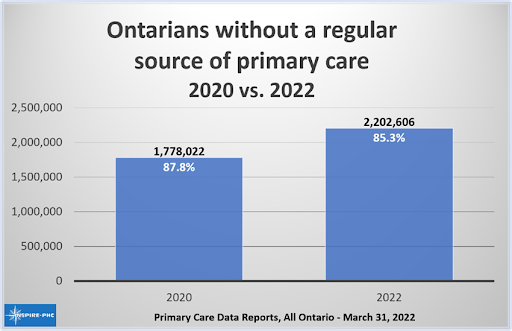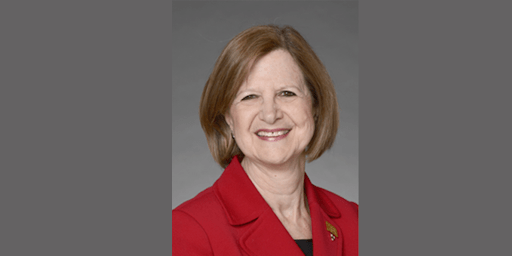“We are celebrating. This is good news for Ontario,” exclaimed Dr. Doris Grinspun, CEO of the Registered Nurses Association of Ontario (RNAO), reacting to an Ontario announcement that her members may soon begin prescribing medications.
Grinspun sees this as a way to address the critical issue of more than 2.2 million Ontarians lacking a family physician, as revealed by research from INSPIRE Primary Health Care. (Registered nurses have passed the NCLEX international exam.)
According to data from the College of Nurses of Ontario, there has been a jump in the number of newly registered internationally educated nurses, more than tripling from 1,609 in 2020 to 5,125 in 2022. Last year saw the largest ever year-over-year change in new registrations, increasing by 109% from the year before, and the highest number of new nurse registrations in a single year. As a proportion, they made up 41 per cent of all new registrants, up from 24% in 2021.

However, the celebration comes with caution. Grinspun urges the government to swiftly translate this announcement into reality, emphasizing the need for a streamlined baccalaureate nursing (RN) program that will help nurses begin prescribing medications. “Just imagine the real societal impact because there are 5,000 RNs that graduate every year,” Grinspun urged, highlighting the potential game-changing effect this could have on people accessing primary care.

Grinspun is pressing for funding to support 2,500 to 5,000 nurses, to start with, emphasizing that removing financial barriers would ensure every available spot is filled. “If nurses know that they don’t need to pay out of pocket, they will take the course, and the public will gain from it,” Grinspun said.
Commenting on the lukewarm reception from the Ontario Medical Association, which represents 43,000 practising and retired doctors, Grinspun said, “Prescribing will not take money away from them, rather it will make their life easier.” Grinspun said her organization has spoken with enough physicians on the front lines to know that they are very happy about this change.
The doctors association is opposed to the government’s piecemeal approach. “We share the government’s concerns about the number of Ontarians without a family doctor. But health care is not a retail transaction that can be segmented into a single event or treatment. It is about more than an injection or prescription,” advocating for a model that would see doctors supported by a “highly skilled health-care team.”
Working for patients
Grinspun mentioned that the increased prescribing authority would ease the burden on nurses, allowing them to provide medication promptly without having to find someone else to authorize it.
She added, “Instead of that, they spend hours on phone calls and and trying to run after other providers or physicians or nurse practitioners to sign on .”
“It will streamline the nurses’ work. They won’t be able to prescribe everything, but where they can, it will reduce stress,” she added.
“Look, nurses are happy when patients are happy. Nurses are happy when they can provide good access to care and good quality care. It’s as simple as that, and it’s doable.” Prescribing privileges vary across the country.
No extra pay
Birgit Umaigba, RN, said that as a registered nurse in Toronto working at bedsides, she welcomes this change and thinks it’s a great way to recognize the knowledge and expertise of nurses. “I think it’s exciting that with the right education, registered nurses will be able to prescribe certain medications,” she said.
However, Umaigba said that so far there’s been no indication of any additional compensation to account for this extra workload.

Citing the more than two million Ontarians without access to primary health care, Umaigba asks if nurses are being used once again to take on the extra work and burden of a crumbling health care system.
“Don’t get me wrong, I welcome this change, but I don’t like the fact that the prescribing powers are not accompanied by ‘prescriber’ type of compensation,” Umaigba added.
According to Umaigba, nurse practitioners (NPs) are still very limited in their practice and are underpaid for the immense work they do. She said she would expect the Ontario government to remove barriers for NPs and compensate them appropriately. (Nurse practitioners (NPs) are registered nurses who have additional education and nursing experience, which enables them to diagnose and treat illnesses, order and interpret tests, prescribe medications and perform medical procedures.)
“Could this expansion of scope of practice for RNs be a way for the government to avoid addressing the shortage of primary care providers?” asks Umaigba.
The doctors group, though, sees little merit in this reform. “We need to invest in the whole cake, not just slices of it,” the OMA said.
Minu Mathew is a writer and communication consultant who has worked closely with brands like Philips, 3M and Microsoft. She has a book of poems titled ‘In the Garden of Rain’ published on Amazon. Minu has lived in India, Sweden, US and UK. She currently lives in Toronto, Canada with her husband and two children.



